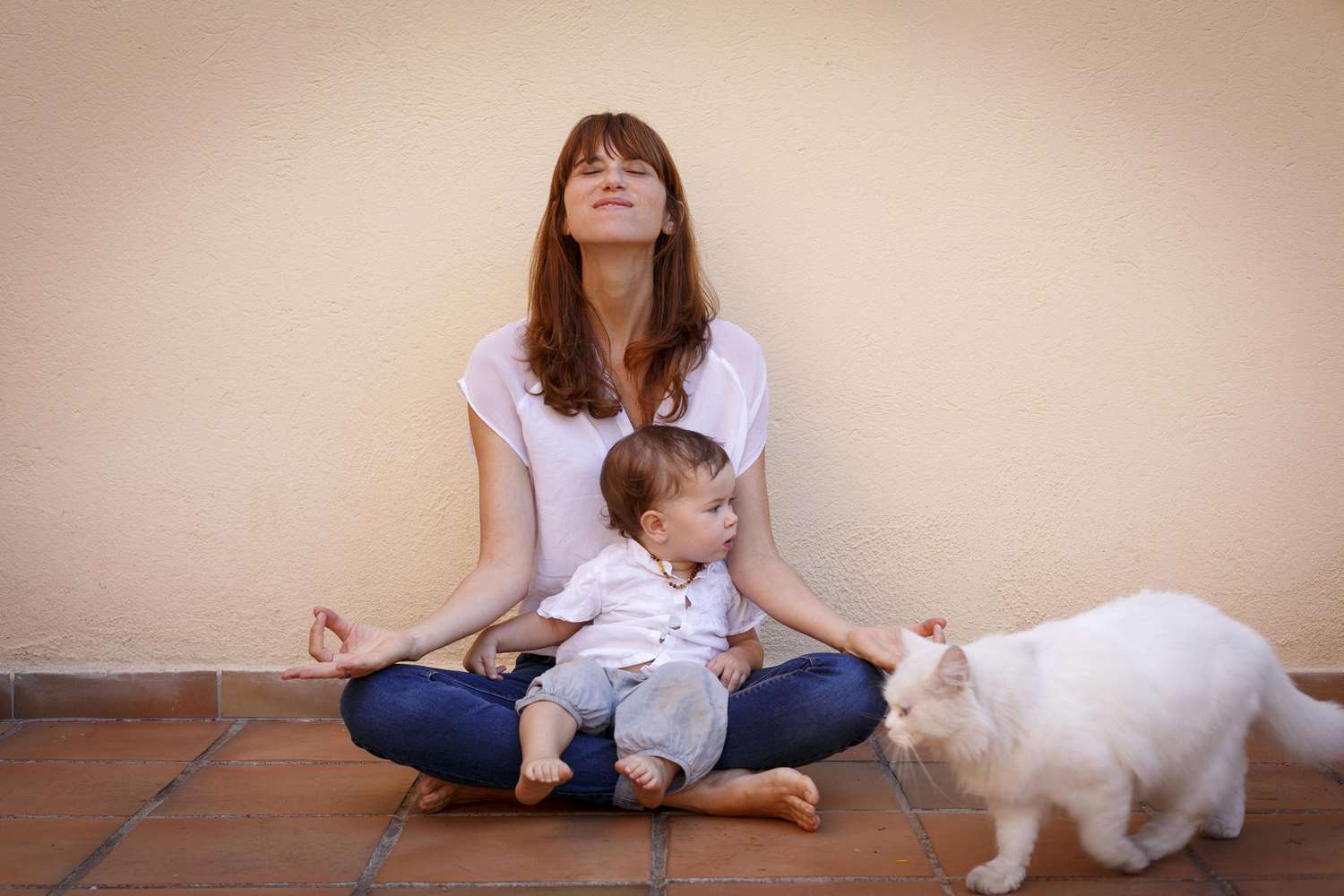Overcoming Single Parenting Challenges With Toddlers: a Guide
Managing single parenting with toddlers? Set achievable goals daily for less stress. Create stable routines with meals, naps, and bedtime – predictability helps behavior. Remember self-care is crucial for your well-being and parenting success. Connect with other single parents for emotional support and useful tips. Use gentle discipline techniques like setting clear boundaries and offering positive reinforcement. You’ve got this!
Key Takeaways
- Establish consistent routines for stability and behavior management.
- Prioritize self-care to maintain well-being and patience.
- Build a support system with other single parents for emotional and practical help.
- Set realistic expectations and achievable daily goals to reduce stress.
- Use positive discipline techniques like boundaries, rewards, redirection, timeouts, and positive reinforcement.
Setting Realistic Expectations

When managing the challenges of single parenting with toddlers, it’s important to set realistic expectations to avoid unnecessary stress and pressure on yourself. Time management becomes vital in this phase of life. Understand that it’s alright if you can’t get everything done in a day. Prioritize what needs immediate attention and tackle tasks one step at a time. By setting achievable goals for the day, you can lessen the feeling of being overwhelmed.
Emotional support is equally significant. Remember to be kind to yourself. Parenting alone can be exhausting, both physically and emotionally. Seek out friends, family, or support groups that can offer understanding and a listening ear. It’s okay to ask for help when needed. Acknowledge your feelings and know that it’s normal to have moments of frustration or doubt.
Establishing Consistent Routines

To navigate the challenges of single parenting with toddlers, ensuring consistent routines can provide stability and predictability for both you and your child. Consistency in daily schedules for meals, naps, playtime, and bedtime helps in behavior management by setting clear expectations for your child. When routines are established and followed consistently, children often feel more secure and are less likely to act out.
Moreover, consistent routines aid in time management, allowing you to plan and allocate time effectively for work, household chores, and quality time with your child. By having set times for activities, you can create a sense of order in your day, reducing stress and increasing productivity.
Prioritizing Self-Care

It’s important for single parents of toddlers to remember that self-care isn’t selfish, but a necessity. Finding time for yourself amidst the demands of parenting can be challenging, but it’s essential for your well-being and ability to care for your child effectively.
Implementing self-care strategies can help you recharge and navigate the challenges of single parenting with toddlers more smoothly.
Importance of Self-Care
Prioritizing self-care as a single parent of toddlers is essential for maintaining your well-being and effectively managing the challenges that come with the role. Taking care of yourself not only benefits you but also positively impacts your children. Self-care tips like setting boundaries, asking for help, and finding moments for yourself can greatly improve your mental health.
It’s easy to overlook your own needs when caring for little ones, but remember that by nurturing yourself, you’ll have more energy and patience to handle the demands of parenting.
Engaging in self-care activities isn’t selfish; it’s a necessity. Whether it’s taking a short walk alone, enjoying a hot bath, or even just a few minutes of deep breathing, these moments of self-care can help reduce stress and prevent burnout.
Finding Time for Self-Care

Finding time for self-care amidst the busyness of single parenting can be demanding, but it’s important for your well-being and resilience. As a single parent with toddlers, juggling responsibilities can leave you feeling drained and overwhelmed. However, carving out moments for yourself is essential to recharge and face the challenges with renewed energy.
Effective time management is key to incorporating self-care into your routine. Schedule short breaks throughout the day to focus on relaxation techniques such as deep breathing, mindfulness, or gentle stretching. These brief moments of calm can help alleviate stress and boost your overall well-being.
Consider simple self-care activities that fit into your schedule, such as taking a relaxing bath after the kids are asleep, going for a short walk during nap time, or enjoying a quiet cup of tea before the day begins.
Prioritizing these moments of self-care won’t only benefit you but also positively impact your ability to parent effectively. Remember, you deserve moments of peace and rejuvenation amidst the chaos of single parenting.
Self-Care Strategies for Parents
Ensuring that you prioritize self-care as a single parent is essential for maintaining your well-being and resilience amidst the demands of parenting toddlers. Stress management is vital in this journey. Find small moments throughout the day to breathe deeply, practice mindfulness, or engage in activities that bring you joy. Remember, taking care of yourself allows you to better care for your little one.
Time management is another key aspect of self-care. Create a schedule that includes dedicated time for yourself, even if it’s just a few minutes each day. Use this time to relax, exercise, read, or pursue a hobby. Don’t hesitate to ask for help from family or friends to carve out these moments for yourself.
Incorporating self-care strategies into your routine won’t only benefit you but also positively impact your relationship with your child. By prioritizing self-care, you’re setting a healthy example for your toddler and ensuring that you have the energy and patience to navigate the challenges of single parenting.
Effective Communication Strategies

When managing single parenting challenges with toddlers, it’s crucial to establish clear boundaries and practice active listening techniques. Setting boundaries can help create a sense of structure and predictability for your child, while active listening fosters understanding and strengthens your relationship with them.
These communication strategies can enhance cooperation and mutual respect within your family dynamic.
Clear Boundary Setting
How can you effectively communicate clear boundaries with your toddler to navigate the challenges of single parenting?
When it comes to behavior management and discipline techniques, setting clear boundaries is essential. Toddlers thrive on routine and consistency, so establishing firm guidelines helps them understand what’s expected of them.
To effectively communicate boundaries, be clear and specific with your instructions. Instead of saying, ‘Don’t make a mess,’ try saying, ‘Please keep your toys in the toy box.’ Using positive language helps your toddler understand what they should do rather than focusing on what they shouldn’t do.
Consistency is key when setting boundaries. Stick to the rules you’ve established to avoid confusion. If a boundary is crossed, calmly remind your child of the rule and provide a reason for why it’s important.
Remember to praise and reward your toddler when they follow the set boundaries. Positive reinforcement encourages good behavior and helps strengthen the parent-child bond.
Active Listening Techniques
To enhance your communication with your toddler, actively engage in listening techniques that foster understanding and connection. Mindful communication is key when interacting with your little one. Practice empathetic responses by truly listening to what your child is expressing, both verbally and non-verbally. Reflective listening is a powerful tool that shows your toddler that their thoughts and feelings are valued. By repeating back what they’ve said, you validate their emotions and promote open dialogue.
Compassionate understanding is essential in active listening. Take the time to tune in to your toddler’s needs and emotions. When your child feels heard and understood, they’re more likely to cooperate and feel secure in your relationship. Remember to maintain eye contact, nod, and use encouraging gestures to show that you’re fully present in the conversation.
Incorporating these active listening techniques into your daily interactions can help strengthen your bond with your toddler and enhance your communication skills. By practicing mindful communication and responding with empathy, you create a supportive environment where your child feels valued and understood.
Building a Support System

Regularly connecting with other single parents can provide valuable emotional support and practical advice as you navigate the challenges of single parenting with toddlers. Building a support system is essential in helping you feel less isolated and overwhelmed. Consider joining local groups or online resources specifically tailored for single parents. These platforms can offer a sense of community, empathy, and shared experiences that can be incredibly comforting.
Local groups often organize playdates, parenting workshops, or support meetings where you can bond with other parents facing similar challenges. These interactions can lead to lasting friendships and a strong support network.
Online resources, such as forums or social media groups, provide convenient ways to connect with single parents at any time, offering a virtual shoulder to lean on when needed.
Positive Discipline Techniques
Establishing clear and consistent boundaries is vital when implementing positive discipline techniques with your toddler. Reward systems can be effective in encouraging good behavior. By offering praise or small rewards for positive actions, you reinforce the behavior you want to see.
Additionally, gentle redirection is a helpful tool. Instead of focusing on what your child shouldn’t do, gently guide them towards more appropriate behaviors.
Timeouts can also be useful for toddlers. When your child needs a moment to calm down or reflect on their actions, a brief timeout can help them reset. Make sure to explain why they’re in timeout and offer positive reinforcement when they come out.
Positive reinforcement is essential in teaching your toddler right from wrong. By praising good behavior and providing positive attention, you can help shape their actions in a constructive way.
Frequently Asked Questions
How Can I Handle Guilt as a Single Parent?
You can handle guilt as a single parent by practicing coping strategies and prioritizing self-care. Building support through community involvement can also help alleviate feelings of guilt and provide a network of understanding individuals to lean on.
What Are Some Tips for Managing Financial Stress?
When managing financial stress, it’s essential to prioritize budgeting strategies. Create a detailed budget, track expenses, and look for areas to cut costs. Consider side hustles to boost income. Remember, taking control of your finances can ease anxiety.
Is It Normal to Feel Overwhelmed and Exhausted?
Feeling overwhelmed and exhausted as a single parent is completely normal. Remember to seek support, practice self-care, set boundaries, and show yourself compassion. Taking care of yourself allows you to better care for your little ones.
How Do I Navigate Co-Parenting Challenges?
Managing co-parenting challenges can be tough, but effective communication strategies are key. Keep lines open, be patient, and focus on your child’s well-being. Don’t hesitate to seek support from friends, family, or a counselor when needed.
What Are Some Creative Ways to Bond With My Toddler?
To bond with your toddler, engage in outdoor adventures like nature walks and picnics. Inside, try sensory play with homemade playdough or engage in creative projects like finger painting. These activities strengthen your connection and create lasting memories.
Conclusion
Remember, managing single parenting with toddlers can be challenging, but it’s important to:
- Set realistic expectations
- Establish routines
- Prioritize self-care
- Communicate effectively
- Build a support system
- Use positive discipline techniques
You aren’t alone in this journey, and with the right tools and mindset, you can overcome any obstacles that come your way.
Stay strong, stay resilient, and remember to take care of yourself as well as your little one. You’ve got this!

Hey there! 👋 I’m a proud mom and passionate writer, sharing my parenting journey. 📝 Join me as I navigate the ups and downs of motherhood, offering tips, advice, and a sprinkle of humor along the way. 🌟







